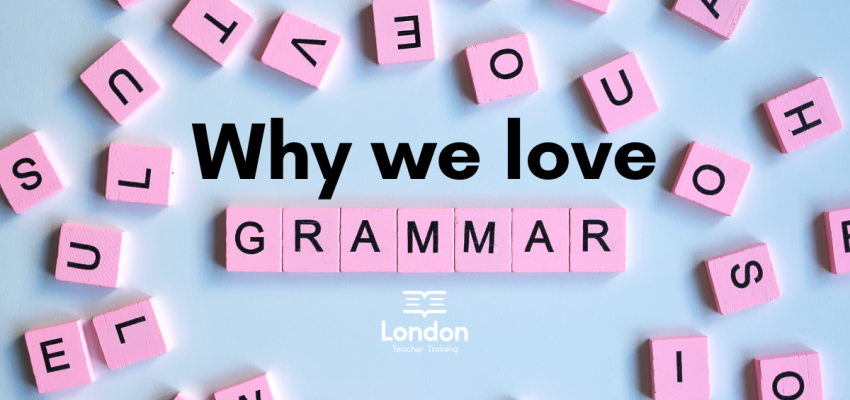Friday, March 29, 2024

‘I feel bad telling students that we’re going to learn grammar’, a teacher once told me. Sorry, what? I politely thought to myself. This idea of having to apologise for teaching grammar is not something unique to this particular teacher. In fact, I’ve heard it on many occasions from experienced and new teachers alike and it seems to be a feeling which is affecting our motivation to teach grammar.
So, why is it viewed so negatively? The Grammar-Translation method for teaching English was, and in some places still is, the main way that language is taught. Its origins lie in the practice of teaching Latin and Ancient Greek, which were languages purely used for academic purposes when they ceased to be the main vernacular of the people. Despite its original purpose, this method was adopted for other languages from the 19th century onwards and was based on the principle that language is presented and then practised repeatedly by writing down sentences, which are translated into the mother tongue. This meant that students spent years learning languages like they were learning history and prosaically writing down rules without knowing how to use the language.
With the dawn of Communicative Language Teaching in the 1970s, English teaching became all about using the language and learning through discovery. Whilst grammar can, and absolutely should, be taught and used for communicative purposes, it seems not to have recovered from the negative association it has with previous, less dynamic ways of teaching. This has led to it being viewed in a way that makes it less attractive to both teachers and students, with coursebook pages on grammar often being heavily laden with explanation and grammar being so frequently tested in schools.
So, why is grammar so important in language teaching and how can we learn to love it?
Without grammar what would language be? It’s the glue that makes a sentence whole, the glue that sticks the meaning words together, the glue that gives the language context. Those often tricky function words help us get from one word to the next and situate our utterance in the right time and place.
What’s the difference between a pidgin and a creole? A pidgin is a contact language with no native speakers whose only function is basic communication between people who do not share a common language. As a pidgin turns into a creole, it gains native speakers, and the simplified grammar develops naturally as there is a need for communication beyond the very basic. Without grammar, communication is extremely limited.
It’s very common for you to hear a student speak and them to make a mistake, but it’s important to know where that student is going wrong. Knowing the grammar enables you to identify the grammatical error and analyse why the student might be making this mistake and how you can go about fixing it. If you don’t work on the correction of these errors in class, they can become fossilised and it’s much harder to get the student to produce the language accurately.
When students repeatedly practise and are exposed to different grammar structures, they are more likely to produce them spontaneously. Instead of having to stop and hesitate over how to say what they want, they already have that bank of language that they can draw from when necessary and it’ll increase fluency and also intelligibility.
As students develop in their language learning, they want to express themselves in more complex ways. Perhaps they even feel frustrated at times if they do not have the grammar they need to express their ideas. Giving students the grammatical tools they need to say what they want to say is a way of liberating them and enabling them to express themselves more naturally.
Once a student has been explicitly taught a grammar structure, they are more likely to be able to use it independently. With consistent controlled and freer practice, not only will students be able to produce the language more autonomously, but they will also be able to correct their own errors and pinpoint exactly where they are going wrong and don’t rely on the teacher to correct them.
Students should and do ask a lot of questions. Whether or not we know the answers to these questions is up to us. It’s no use saying ‘that’s just the way it is’ without providing the students with some kind of explanation as to why it is that way. Knowing the grammar that you are teaching makes you much better placed to resolve students’ doubts and answer any questions they may have.
Contrastive analysis is a great way to understand how English grammar works in comparison to other languages your students might know, whether that be their mother tongue or other languages they have learnt. This helps to draw students’ attention to similarities or differences and makes it easier for you to anticipate errors that they might make.
Whilst it may be impossible to know everything there is to know about grammar, it’s a teacher’s job to look up the language they are going to teach and ensure they understand what students need to know. It’s not enough to rely on the explanation in the coursebook and expect students to get everything they need from the sometimes-confusing grammar reference pages.
Last but not least, grammar is something that we should embrace, not be afraid of. For all the benefits mentioned above, it’s something that we owe to our students and can make their learning so much more effective and useful in the future.
Have we convinced you that grammar is something worthy of your time and energy? If there’s one thing we’re sure of, it’s that if you learn to love grammar and it will absolutely love you back!